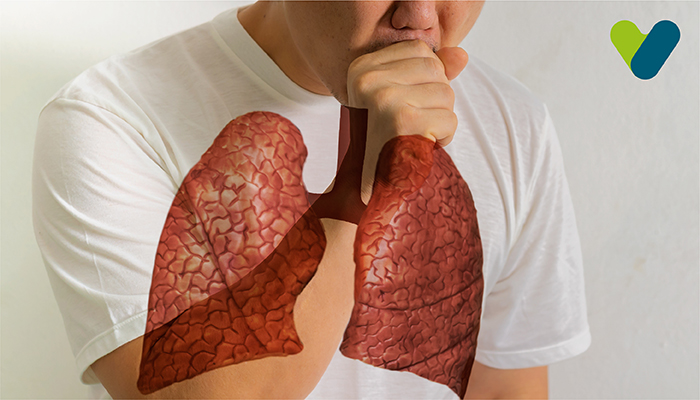Introduction
Riya was suffering from coughs. At first, she thought it was a typical cold. She did not consult a doctor. Instead, she consumed her usual cough medicines. But the cough did not go away. And phlegm or pus was coming out. Riya even suffered from fever, chills, and breathing troubles. At last, she decided to meet a doctor.Riya was diagnosed with pneumonia. The doctor said that her lungs were affected. The air sacs present in both lungs were clogged with fluid or pus. All of these were causing difficulty in breathing and other symptoms. But luckily, Riya was a teenager. That is why she was not severely affected.
About Walking Pneumonia
Pneumonia can be mild or severe. Each type has its signs and symptoms. The kind of walking pneumonia symptoms depends on the following factors.- Type of the germ
- Age of the person
- The condition of health
Common victims
People of specific age groups and health issues get severely affected by pneumonia. This includes-- Infants
- Young children
- People older than the age 65
- People with serious health issues or a weak immune system
Symptoms of walking pneumonia
Below is the list of some common signs of walking pneumonia in general.- Pain in the chest
- Releasing of phlegm with coughs
- Fatigue
- Fever and shaking chills
- Nausea
- Diarrhoea (sometimes)
- Shortness of breath
- Changes in the mental awareness
- Lower body temperature
- Vomiting
- Having fever and cough
- Feeling tired
- Facing difficulties while breathing
Time to consult a doctor
Consulting a doctor for the treatment for walking pneumonia is necessary when the following signs start appearing.- Breathing troubles
- Chest pain
- Persistent high fever
- Coughing releasing phlegm or pus
How pneumonia is caused
Several germs can cause pneumonia. The bacteria and viruses in the air are the most common ones. These germs can affect the immune system. Even at times, people with good health can be affected too.Types of pneumonia
Pneumonia is of different types. The types are based on two factors- i) the Type of the germ and ii) The area of infection. Based on these factors, pneumonia can be of four types.1. Community-acquired pneumonia
This type of pneumonia is the most common one. In general, it affects people outside hospitals or health care facilities. This can be caused by bacteria, bacteria-like organisms, fungi, and other viruses. Even recent research has shown that the COVID-19 virus can also take part in it.2. Hospital-acquired pneumonia
This type of pneumonia can appear to be serious. The bacteria, in this case, are more resistant to antibiotics. The reason behind this is that the affected people are already sick in some way or the other. Especially people at ventilators, ICUs (Intensive Care Units) can be at higher risk to catch the infection.3. Health care-acquired pneumonia
It is an infection caused by bacteria. This generally happens to people who live in long-term care facilities. In addition, people receiving care in outpatient clinics (e.g. kidney dialysis centres) can be affected too.4. Aspiration pneumonia
This type of pneumonia can appear when foods, drinks, vomit, saliva get to the lungs. They reach there by inhalation. It can be caused due to brain injury or excessive consummation of drugs and alcohol.Prevention of walking pneumonia
Pneumonia can be prevented by following certain factors.- Receiving pneumonia vaccine.
- Washing hands daily.
- Staying away from smoking.
- Enough sleep, regular exercise, and a healthy diet are necessary.


